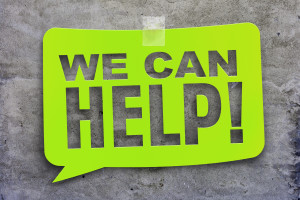 The abuse of and addiction to opioids such as heroin, morphine, and prescription pain relievers is a serious global problem that affects the health, social, and economic welfare of all societies. It is estimated that between 26.4 million and 36 million people abuse opioids worldwide, with an estimated 2.1 million people in the United States suffering from substance use disorders related to prescription opioid pain relievers in 2012.
The abuse of and addiction to opioids such as heroin, morphine, and prescription pain relievers is a serious global problem that affects the health, social, and economic welfare of all societies. It is estimated that between 26.4 million and 36 million people abuse opioids worldwide, with an estimated 2.1 million people in the United States suffering from substance use disorders related to prescription opioid pain relievers in 2012.
In worst cases, overdose and death can occur, and the amount of unintentional deaths from prescription pain relievers in the United States has more than quadrupled since 1999. Despite the shocking statistics, opiate addiction can be successfully treated, so there is always hope.
Opiates are helpful in treating pain when taken as directed, but their euphoric effect is so intense it can cause behavioral and physical dependence and addiction. If opiate use is suddenly decreased or stopped altogether, symptoms of withdrawal will likely occur. This doesn’t necessarily mean the user is addicted, however, and can range in intensity. Symptoms of opiate withdrawal include:
- anxiety
- excessive sweating
- runny nose
- insomnia
- restlessness
- muscle aches
- abdominal cramping
- diarrhea
- nausea and vomiting
- high blood pressure
- rapid heartbeat
An addiction occurs when the prolonged opiate use leads to nerve damage in the brain, causing cells to stop producing their own natural opiates—or endorphins. The body cannot stop pain on its own when those endorphins are not created, thus leading to a physical dependence and addiction. If you or someone you know is exhibiting any of these signs, they may have an addiction:
- changes in behavior or extreme mood alterations; frequent expression of anxiety, anger, agitation, or hostility
- continued use of the opiate after the pain the medication was diagnosed for is gone
- becoming increasingly solitary
- neglect of personal hygiene
- changes in eating habits
- decline in overall performance of school, work, and social life
- deceitful or illegal behaviors in order to obtain more of the opiate
Treatment for opiate addiction will include a withdrawal treatment, post-withdrawal stabilization, and psychological addiction treatment. The physical dependence must be eradicated first, and afterward therapy and counseling are used to discover the root cause of the addiction and prepare the patient for returning to their lives and remaining sober.
Dealing with opiate addiction is tough, so be sure to ask for help. LEAD Recovery Center’s experts are available to answer any questions, so call today at 800-380-0012.

